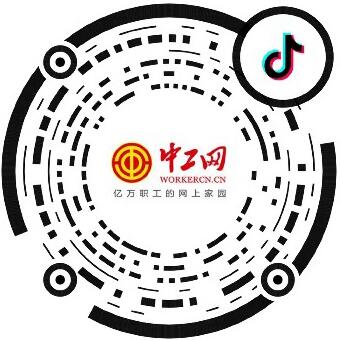Original title: successive introduction of favorable policies, boosting the recovery of the real estate market (introduction)
The policy addition and subtraction method injects "living water" into the property market (theme)
Worker's Daily - Shi Lanna, reporter of China Industrial Network
Reading tips
Recently, the property market policy "gift package" continues to increase. Local governments have skillfully used the policy addition of "old for new" to stimulate people's enthusiasm for buying houses, as well as the policy reduction of canceling purchase restrictions, reducing the down payment ratio and mortgage interest rate, to help release the potential demand for buying houses, boost the sentiment of the real estate market, and accelerate the recovery of the market.
Since the beginning of this year, there have been positive policies in the property market. In the second quarter, the policy "gift package" has continued to increase. Local governments have skillfully used the addition of policies such as "old for new" to stimulate people's enthusiasm for buying houses, as well as the cancellation of purchase restrictions, reduction of down payment ratio and mortgage interest rate, to boost the steady and healthy development of the real estate market.
The policy addition and subtraction method injects "living water" into the property market. The salesperson of a real estate in Songjiang District, Shanghai, who participated in the "old for new" activity, told the reporter that during the more than one week of the "old for new" activity of Shanghai commercial housing, 7 units of the real estate had been signed for sale. In Hangzhou, the first day of the comprehensive cancellation of purchase restrictions, the number of new listings of second-hand houses in a single day surged by 91%.
Industry insiders said that adding to innovative policies and subtracting from restrictive policies can help release potential housing demand, boost the sentiment of the real estate market and accelerate the recovery of the market.
Adding innovative policies to stimulate the vitality of the property market
"Participation in the 'old for new' is tantamount to a 'reassurance' for those who want to change houses." The salesperson of one of the above buildings said that the advantage of choosing the "old for new" option is that after signing a new house purchase contract, the old house can get the priority recommendation of the real estate enterprise cooperation intermediary, increase the exposure of the listing of second-hand houses, and help sell houses faster. Even if the house fails to sell in the replacement cycle, it is not a breach of contract, and the deposit can be refunded.
Since this year, the policy of "old for new" has been introduced intensively. According to the monitoring data of the China Index Research Institute, as of May 20, more than 60 cities across the country have expressed their support for "old for new" housing, and the policy is gradually blowing to the first tier cities.
"From the disclosed data, the number of" old for new "intention registration, effective registration and completed intention subscription of new houses in various cities is quite considerable." Li Yujia, chief researcher of the Housing Policy Research Center of Guangdong Provincial Institute of Urban Planning, believes that this shows that the potential of "old for new" of second-hand houses is relatively large. However, the most critical part of "old for new" is whether old houses can be sold smoothly. Li Yujia suggested that the promotion of second-hand housing sales should be strengthened by reducing mortgage interest rates, deed tax reduction and other preferential ways.
It is not just "trade in the old for the new". Recently, the constantly introduced policy addition focuses on releasing the potential housing demand, promoting the virtuous circle between finance and real estate, and helping to stimulate the vitality of the real estate market.
Some new first tier cities link house purchase with the household registration system. For example, Hangzhou, Nanjing and other cities attract more people to buy houses by lowering the threshold of settlement. Industry insiders believe that this will accelerate the release of housing demand, boost housing sales performance, and also help attract more talents from other places to settle down and bring more development potential for the local.
In terms of finance, on May 17, the Central Bank announced the establishment of 300 billion yuan of affordable housing refinancing to support local state-owned enterprises to purchase completed but unsold commercial housing as affordable housing and accelerate the de stocking of existing commercial housing. Previously, the urban real estate financing coordination mechanism has been established in 297 cities at prefecture level and above, and two batches of "white list" projects have been pushed, and the project will receive nearly one trillion yuan of financing. A variety of favorable policies have been introduced intensively, which brings a good opportunity for the property market to recover.
Subtract restrictive policies and loosen restrictions on the property market
While introducing new policies to tap the market potential, some places also made timely adjustments to the previous restrictive policies to loosen the real estate market.
It is less than two months since Hangzhou lifted the restrictions on the purchase of second-hand houses. On May 9, the city optimized and adjusted the real estate market regulation policy to enlarge the recruitment again, and completely lifted the restrictions on the purchase of houses. On the same day, Xi'an immediately announced the complete cancellation of housing purchase restrictions. According to incomplete statistics of Zhuge Data Research Center, as of May 16, there were about 50 cities in the country loosening the housing purchase restrictions.
"Almost all provincial capital cities nationwide have cancelled the purchase restriction policy, which means that it is a general trend to cancel the purchase restriction, and it also means that the idea of 'market returns to market, security returns to security' has been further implemented." Yan Yuejin, research director of E-House Research Institute, said.
In addition to purchase restrictions, recently, the housing loan policy has also been continuously adjusted and optimized. On May 17, the Central Bank and the General Administration of Financial Supervision issued a notice to reduce the down payment ratio of the first and second housing units. After the adjustment, the down payment ratio of the first house is reduced to no less than 15%, and the down payment ratio of the second house is no less than 25%, 5 percentage points lower than before. At the same time, the lower limit of the loan interest rate policy for the first and second set of housing at the national level was cancelled, and the right to regulate the lower limit of the mortgage interest rate was given to the local government.
Chen Wenjing, the market research director of China Index Research Institute, believes that the down payment ratio and housing loan interest rate will be at a historical low after the policy adjustment, further reducing the down payment threshold and housing purchase costs of residents, which is expected to boost residents' willingness to buy houses. If core cities accelerate to follow up relevant measures, it is expected to have a greater driving effect on market sentiment.
Not only that, the deregulation of the property market also made efforts to optimize and adjust the housing provident fund policy, and increased the encouragement and support for housing purchase by increasing the loan limit, raising the loan ceiling of multi child families and young talents and other groups.
Make efforts on both sides of supply and demand to build a new model of real estate development
At present, China's housing has shifted from a shortage of total housing to a basic balance of total housing, but there are still structural deficiencies. Residents' demand for housing has changed from "whether there is" to "whether it is good", and the demand for good houses is still strong.
On April 30, the meeting of the Political Bureau of the Central Committee of the Communist Party of China (CPC) called for a coordinated study of policies and measures to digest the stock of real estate and optimize the incremental housing in combination with the new changes in the relationship between supply and demand in the real estate market, and paid close attention to the construction of a new model of real estate development.
"The frequent emergence of favorable policies, such as supporting the establishment of the" old for new "housing purchase model and comprehensively abolishing purchase restrictions, means that all regions have thoroughly implemented the spirit of the meeting of the Political Bureau of the CPC Central Committee, adapted to the new changes in the supply and demand relationship of the real estate market, and also means that the trend of policy easing has arrived in May," said Yan Yuejin.
In view of the delivery difficulties faced by some commercial housing projects under construction and sold in the process of real estate market adjustment, on May 17, at the regular policy briefing of the State Council, the relevant departments said that they would focus on doing a good job in ensuring the delivery of housing, classify the commercial housing projects under construction, sold but not delivered in accordance with the principles of marketization and rule of law, and promote the delivery of project construction, Effectively protect the legitimate rights and interests of house buyers.
"The current real estate market needs to focus on both supply and demand and build a new development model. Ensuring the delivery of housing is closely related to people's livelihood. Only by delivering new housing on time can we eliminate the concerns of buyers and promote the steady development of the real estate market." said Wang Xiaoqiang, chief analyst of Zhuge Data Research Center.
The China Index Research Institute predicted that with the coordinated development of macro policies and the continuous follow-up of policies at both ends of real estate supply and demand, the market sentiment in the second quarter is expected to improve marginally, especially in core cities, driven by policies, the market activity may gradually repair.
Yan Yuejin believes that a more relaxed real estate policy is gradually taking shape, and it is expected that the national real estate market will usher in a wave of good de stocking market, which will help promote a better, faster and more stable pace of market recovery.


















